#Jetting Drain
Text
3 notes
·
View notes
Text
yk what i think is criminal the LACK OF JET FANFICTIONS HELLO HAVE YOU SEEN SEBASTIAN AMORUSO IN THE LIVE ACTION ATLA im about to take matter in my own hands except 1. i have no time to do so but im about to self sabotage to do it anyway and 2. massive writers block.
#atla live action#atla#atla netflix#atla jet#jet atla#i'm about to throw my plans down the drain for this man#why#sigh#☁️. talks
32 notes
·
View notes
Text
if i had a genie lamp id wish for Three Things: 1) spiders stay the fuck away from me & out of my spaces. 2) infinite moneys. 3) draw quickly.
#mainly the Draw Quickly one#i scribble so so so so slow#i could share So Much More if i could do more than one full doodle per night#like that one butterfly!howdy thing where he jumped off the roof? took me all fucking night#im not even exaggerating lmfao it took Hours#i looks at people cranking out a+ doodle posts and im sadly gazing from behind my rain-streaked window a la kermit#except its not rain streaked. i havent seen rain in months i think#absolutely unprompted#oh while im here lemme give a spider update No One asked for#yeah so yesterday the Biggest wolf spider i have Ever seen decided to set up camp in my bathroom. bc of course it did.#i mean that thing was. disturbingly big. freakazoid city.#i had to chase it into the bathtub with my spider-fighting broom#and then i uhhhhhh febreezed it until it couldnt move.#then i washed it down the drain with a high powered jet of shower water#do i feel bad? yes of course. but there was no other way that i could handle.#im assuming that when i go get a Snack right after posting this another spider will be in the hallway or in my bathroom#its summer. unfortunately. there will only be more and more crawling inside#edit: my cat magically Appeared in my room. i stg both of them were out when i closed the door
52 notes
·
View notes
Text

To ensure its long-term durability, your home's plumbing fittings must be professionally installed. You run the risk of damaging your house, the fixture, or an incorrect installation if you attempt to conduct the work yourself. To get the job done efficiently and accurately, you need a plumber for fixture installation and repair operations.
Toilets, showers, water heaters, garbage disposals, and other fixtures are examples of plumbing fixtures. Try as you might, doing these installations yourself can go horribly wrong.
#main line clean out#hydro jet cleaning in hampton#outside water sillcock#drain cleaning services#plumber services#emergency plumbing repair#same day plumbing service#plumber services in hampton#draincleaningservices#draincleaningservicesinhampton
2 notes
·
View notes
Text
So I’ve tested positive for THE COVID, which has absolutely improved my stress levels as you can imagine, and I think what’s really tying the entire situation together for me is that I decided this morning to seize the opportunity of being at home to repot the succulent plant I bought last weekend with an eye to taking it to my office, and when I realized I’d bought the wrong pot, I cried.
#it doesn't drain#so keeping it in there is basically a death sentence#and that's awesome good times#ANYWAY BACK TO ERROR HANDLING AND EXCESSIVE COUGHING#life with jet wolf
52 notes
·
View notes
Text
The Difference Between Hydro Jetting and Traditional Drain Cleaning Methods
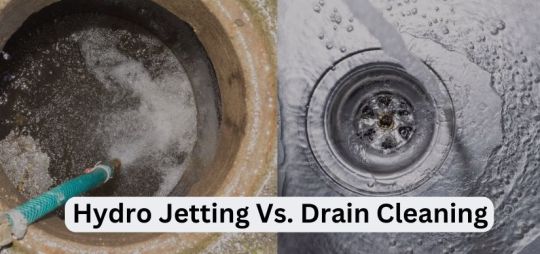
The overall health and well-being of you and your family members have a direct bearing on keeping our drains clean at all time. But clogged drains are common plumbing issues that are caused by some factors such as hair, grease buildup, debris accumulation, and soap scum.
To address this issue, there are two primary methods used for drain cleaning – traditional drain cleaning and hydro jetting. For those in El Cajon, CA, it is pertinent to be always proactive when it comes to drain cleaning.
El Cajon drain cleaning is an essential aspect of keeping your plumbing in excellent condition. So, let’s dive in and explore the differences between hydro jetting and traditional drain cleaning methods.
Traditional Drain Cleaning Methods
A plumbing snake or a drain auger is typically used in traditional drain cleaning techniques. When the plumber has reached the obstruction, he or she turns the snake in a clockwise direction to remove the blockage and break it up. A drain auger, on the other hand, is a more rigid instrument that is inserted into the drain until it encounters the obstruction.
The plumber uses the auger to break up and push the obstruction through the drain system once it has been located. These age-old techniques have some drawbacks but are frequently successful at clearing clogs. They are best suited for smaller clogs that are close to the drain opening, to start.
Secondly, conventional drain cleaning methods can cause damage to your plumbing system if not used correctly. Costly repairs and replacements may result from this.
Hydro Jetting
A high-pressure stream of water is used in hydro jetting, also referred to as high-pressure water jetting, a more sophisticated drain cleaning technique, to clear blockages and buildup from pipes. This method can clear even the most difficult clogs and buildup and is typically more effective than conventional drain cleaning techniques.
High-pressure water is sprayed into the pipe during the hydro jetting procedure after a specialized nozzle is inserted into the drain. Even the most stubborn clogs and buildup can be removed by blasting them away with the water pressure, which can reach up to 4000 psi.
Depending on the type of obstruction and the state of the pipes, the water pressure can be changed. El Cajon homeowners should consider hydro jetting because it is both highly effective and safe for their plumbing systems.
By thoroughly cleaning the inside of the pipes, hydro jetting can also help prevent future clogs and buildup. This technique can be used to clean sewer lines, storm drains, and other things on residential and commercial properties.
Also Read – How Clogged Drains Can Make Your Home Scary
Key Differences Between Hydro Jetting and Traditional Drain Cleaning?
There are two ways to unclog drains: hydro jetting and conventional drain cleaning techniques. However, they differ greatly in terms of equipment, efficacy, safety, environmental friendliness, and cost.
Equipment
The manual tools used in traditional drain cleanings methods, such as a plumbing snake or a drain auger, can access clogs that are close to the drain opening. Hydro jetting, on the other hand, makes use of specialized tools like a high-pressure water jet and a unique nozzle that can penetrate deeper into the pipes and clear even the most difficult clogs.
Versatility
Another major distinction between hydro jetting and conventional drain cleaning techniques is their versatility. The plumbing systems in both residential and commercial buildings, as well as other types of drains, can be cleaned using the adaptable drain cleaning technique known as hydro jetting. It can clean storm drains, sewer lines, and other things.
On the other hand, conventional drain cleaning in El Cajon is less adaptable and might only be suitable for particular kinds of clogs and pipes.
For instance, a plumbing snake or drain auger might not be able to reach deep clogs or thoroughly clean the inside of the pipes, which can result in more buildup and clogs in the future. Numerous plumbing problems can be resolved with hydro jetting, including the elimination of mineral buildup, soap scum, and grease that can clog pipes and harm your plumbing system.
Additionally, hydro jetting is an efficient way to keep your pipes clean and avoid clogs and buildup in the future.
Effectiveness
Drain cleaning with hydro jetting is very efficient. The inside of the pipes can be thoroughly cleaned by the high-pressure water stream, which can blast away dirt, grease, and other buildups.
On the other hand, conventional El Cajon drain cleaning techniques might only work for smaller clogs that are close to the drain opening. Traditional methods may not be as effective at clearing larger blockages and may not be able to thoroughly clean the inside of the pipes, which can result in clogs and buildup in the future.
Safety
Because hydro jetting doesn’t use harsh chemicals or abrasive tools that could harm your pipes, it is a safer option for your El Cajon drain cleaning. When used improperly, traditional drain cleaning techniques can harm your plumbing system and necessitate expensive repairs and replacements.
Eco-friendliness
More environmentally friendly than conventional drain cleaning approaches is hydro jetting. It doesn’t use harsh chemicals that could endanger the health of your family or the environment. In addition, hydro jetting uses less water than conventional techniques, making it a more environmentally friendly choice.
Preventative Maintenance
Another factor to take into account when contrasting hydro jetting and conventional drain cleaning methods is preventative maintenance. It’s pertinent to perform routine maintenance to keep your plumbing system in top shape and avoid clogs and other problems.
The majority of the time, traditional drain cleaning techniques are reactive and applied after a clog has already formed. The underlying cause of the issue, such as buildup or other obstructions in the pipes, is not addressed, despite the fact that they may be successful in clearing the clog.
On the other hand, hydro jetting works well for routine maintenance. Hydro jetting can remove buildup and other obstructions from inside the pipes before they become clogged by using high-pressure water to clean them.
This can prolong the life of your plumbing system and help prevent future plumbing problems. Regular hydro jetting maintenance can also assist in spotting potential problems in your plumbing system before they worsen.
Hydro jetting technicians can spot any signs of wear or damage that may need to be repaired by inspecting your pipes with specialized equipment.
Cost
The cost of hydro jetting is typically higher than that of conventional drain cleaning techniques. In the long run, though, it might be a more economical choice because it can lessen the need for pricey repairs and replacements by preventing future clogs and buildup.
Source : The Difference Between Hydro Jetting and Traditional Drain Cleaning Methods
Conclusion
For an effective drain cleaning in El Cajon, you need to consider these two methods. Both hydro jetting and conventional drain cleaning have advantages and drawbacks. Traditional drain cleaning might not be as effective as hydro jetting, though, and it could harm your plumbing system. Even the most difficult clogs and buildup can be removed using the more sophisticated and efficient technique of hydro jetting.
It can also stop future clogs and buildup in addition to being eco-friendly and safer for your plumbing system. It’s essential to get in touch with a qualified plumber for your El Cajon drain cleaning if you have clogged drains in your house or place of business because they can assess the problem and advise you on the best course of action.
You can decide whether hydro jetting or conventional drain cleaning in El Cajon is the best choice for your particular needs with the assistance of a qualified and experienced plumber.
2 notes
·
View notes
Text
How to provide effective Drain Cleaning Huntington Beach
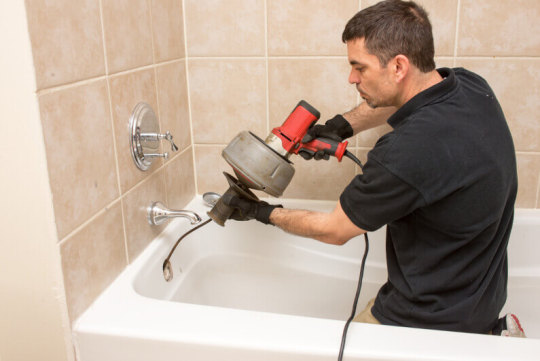
There are both residential and commercial clients come to our experts for advice and quick service on the most difficult drains. Drain Cleaning Huntington Beach can handle any drain related problems, including trenchless sewer repair, a new drain liner, or other draining cleaning in Huntington Beach services. Get more information visit here: - bit.ly/3jfJeiS
#Drain Cleaning Huntington Beach#unclog drain huntington beach#drain cleaning huntington beach ca#sewer drain cleaning#drain cleaning services#unclog bathtub drain#sewer cleaning near me#clean out drain#drainage cleaning services near me#sewage cleaning services#drain specialist near me#hydro jetting near me#sewage cleaning services near me
6 notes
·
View notes
Text
Sewer Line Repairment San Marcos
Over time, sewer line repairment in san Marcos that can become damaged, blocked, or disrupted. Emergency 24-Hour Plumbing & Drain Services.
#Sewer Line Repairment San Marcos#Sewer Replacement San Marcos#Sewer Installation San Marcos#Roots in Sewer line San Marcos#Clogged Drains San Marcos#Plumbing Solutions San Marcos#Commercial Plumbing San Marcos#Backflow prevention Installations San Marcos#Sump Pumps solutions San Marcos#Garbage disposals Installations San Marcos#Faucet Installations San Marcos#Toilet Repair San Marcos#Gas Line Repair San Marcos#Water Leak Detection San Marcos#Gas Leak Detection San Marcos#Slab Leak Detection San Marcos#Drain Cleaning San Marcos#Residential Drain Cleaning San Marcos#Commercial Drain Cleaning San Marcos#Hydro Jetting San Marcos#Sewer Camera Inspections San Marcos#Gas Water Heaters Repairs San Marcos#Gas Water Heaters Installations San Marcos#Electric Water Heaters San Marcos#Tankless Water Heaters Repairs San Marcos#Boilers Installation San Marcos#Residential Water Softners San Marcos#Commercial Water Softners San Marcos#Residential Water Filtration San Marcos#Commercial Water Filtration San Marcos
3 notes
·
View notes
Text
Professional Drain Line Jetting Cleaning Services in Abu Dhabi
Al Waha Hygiene offers expert drain line jetting cleaning services in Abu Dhabi. Our professional team ensures thorough cleaning to keep your drains clear and functioning smoothly. Trust us for efficient and reliable solutions to your drain cleaning needs in Abu Dhabi. Click on the link for more information: https://drain-line-jetting-cleaning-services-abu-dhabi.mystrikingly.com/
0 notes
Text

Expert Plumber Near Elyria, Ohio: Your Reliable Plumbing Solution.
Looking for a reliable plumber near Elyria, Ohio? Look no further than Active Rooter Plumbing & Drain Cleaning! Our expert team offers top-notch plumbing services to keep your home or business running smoothly. From drain cleaning to sewer line inspection and everything in between, we have the tools and expertise to handle any plumbing issue. Visit our website at https://www.activerooterplumbingdraincleaning.com/ to learn more about our services and schedule an appointment today. Trust Active Rooter for all your plumbing needs in Elyria and beyond.

0 notes
Text
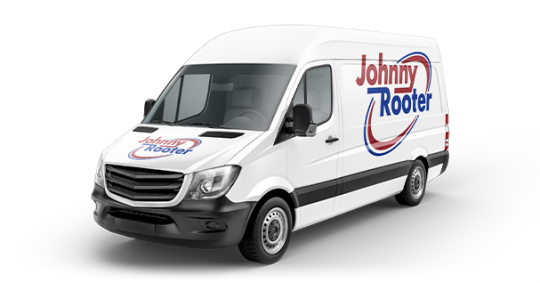
1 note
·
View note
Text
Detecting and Dealing with Leaks: A Complete Guide for Jersey City Homeowners
Water is a wonderful thing, until it's not. The slightest leak in your home's plumbing can lead to major issues if left undetected and unaddressed. With winter on our doorstep, ensuring that your plumbing is leak-free is more important than ever. pipe jetting company Newark NJ, where temperatures often drop below freezing, the risk of burst pipes is a very real concern.
In this guide, we'll walk through the ins and outs of leak detection, exploring common signs, DIY assessments, and knowing when to call a professional. Whether you're a seasoned homeowner or a new property owner in the vibrant city of Jersey City, understanding how to detect and address leaks can save you from potential catastrophes.
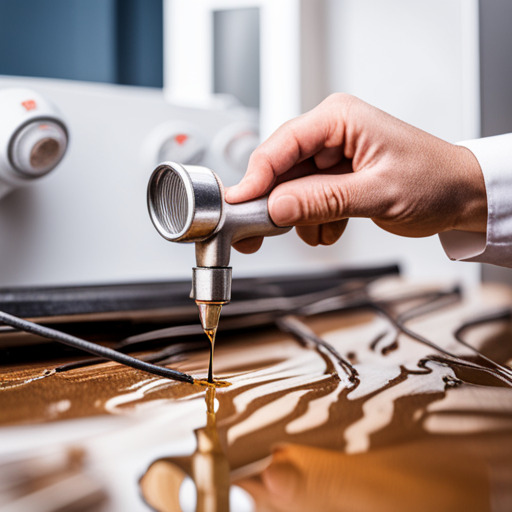
Major Signs of Leaks to Watch Out For
Detecting a water leak in your home often starts with spotting the physical evidence. Here are the major signs to be vigilant for:
Unexplained Spike in Water Bill: If your water usage hasn't changed, but your bill skyrocketed, a leak is often to blame.
Persistent Dampness: Water stains, mildew, or unexplained dampness on walls and ceilings indicates a leak in the area.
Discolored Water: Brown or yellowish water is a sure sign of rust in your pipes, often caused by a leak.
Strange Sounds: The sound of running water when no faucets are turned on or the hissing of pipes can indicate a hidden leak.
Lush Patches in Lawn: If an area of your garden is greener than the rest, there may be an underground water line leaking.
By staying alert for these signs, you can catch leaks early before they escalate into larger problems.
DIY Leak Detection Techniques
When you suspect a leak, the first step is to confirm its existence and locate its source if possible. Here's how you can perform basic DIY leak detection:
Check Your Water Meter
Turn off all water sources in your home and look at your water meter. If it continues ticking over, you likely have a leak.
Dye Test Your Toilets
Leaking toilets can be silent, yet wasteful. Add some food coloring to the tank and wait 30 minutes. If the color appears in the bowl, you've got a leaky flush valve.
Inspect Pipes and Faucets
Visually inspect all visible pipes and faucets for any visible signs of water. Feel around for moisture and inspect joints and connections for corrosion or rust.
Listen Closely
Use a stethoscope or a simple piece of tubing to listen to pipes. Vibrations from a leak can often be detected through the sound.
These straightforward techniques can often help you pinpoint a leak within your home.
When to Bring in a Professional Leak Detector
While DIY tests are a great starting point, some leaks are beyond the scope of the average homeowner to detect. Here are a few scenarios when it's time to call in a professional leak detector:
Underground Leaks: If you suspect a leak in a water line buried underground, it's best to get a professional with the proper equipment to locate the precise spot.
Behind Walls or Under Floors: Leaks in these areas may require significant teardown for proper inspection, and professionals can minimize the damage.
Complex Plumbing Systems: For properties with complex systems or old piping, a professional is your best bet to tackle the issue.
Persistent Leaks with No Visible Source: Sometimes, leaks are evident from the damage they cause but impossible to see directly. A professional can leverage experience and equipment to find such leaks.
Leak detection Jersey City NJ, offer expertise in spotting and finding the cause of leaks that might otherwise go unnoticed.
Tackling Leaks with A Plumbing Partner
Once a leak is detected, the approach to repairing it is as critical as the detection itself. A professional plumber will guide you through this process:
Upgrading Your Plumbing System
Old and outdated plumbing can be more prone to leaks. Upgrading to modern systems can prevent future issues.
Patching or Replacing the Leaking Area
Temporary patches may be done for immediate relief, but a permanent solution often requires a section of the pipe to be replaced.
Preventative Maintenance
Regular inspections of your plumbing system can catch potential leaks before they even start.
Jersey City homeowners should consider establishing a relationship with a plumber they trust to handle all future plumbing needs.
The Role of Technology in Leak Detection
Technology has revolutionized the way leaks are detected in the home. Tools like moisture meters, cameras, and even drones are assisting professionals in pinpointing leaks with precision.
Moisture Meters
These devices can detect moisture levels behind walls and under floors, leading professionals to the source of the leak.
Thermal Imaging
Thermal cameras can visualize temperature changes associated with water leaks, helping to narrow down the search area.
Acoustic Listening Devices
By amplifying the sound of water movement, these devices help contractors ‘hear’ where leaks are happening.
Investing in the latest technologies enables leak detectors to quickly and accurately find leaks, preventing unnecessary destruction in your home.
Insurance and Financial Considerations
Leak detection and repair can be costly, but being prepared is key. Home insurance policies vary on what's covered when it comes to leaks, and it's vital to understand your coverage.
Regularly Review Your Policy
Check your policy for water damage coverage, exclusions, and deductible amounts. Ensure that you understand the fine print.
Consider Additional Coverage
Depending on your home's location and age, you may wish to purchase additional coverage specifically for water damage.
Document Everything
In the event of a leak, document the damage and the steps taken to address it. This information will be crucial when filing a claim.
Understanding your insurance options can help you plan for the financial impact of potentially large repairs due to leaks.
Conclusion
Leak detection is a critical part of home maintenance, particularly in cities like Jersey City, where the winter weather poses an increased risk of burst pipes. By staying informed, employing DIY techniques, knowing when to bring in a professional, and understanding your insurance coverage, you can protect your home from the damaging effects of leaks.
If you suspect a leak or simply want to be proactive, do not hesitate to reach out to a Jersey City plumbing professional. Remember, the key to managing leaks is detection, and the key to detection is vigilance.
#plumbing services#boiler repair service#boiler repairs#repairing services#nj sewer cleaning service#boiler repair services#donald trump#plumbing hydro jet north bergen nj#leak detection jersey city nj#sewer and drain services in paramus nj#sump pump inspection jersey city nj#residential sewer pipe repair sparta nj#water heating repair
1 note
·
View note
Text
The Ultimate Guide to Water Heater Installation in North Plainfield, NJ
Efficient water heating is crucial for everyday comfort, and when it's time to install or upgrade your water heater, the process can seem complex and daunting. But fear not. In this comprehensive guide, we'll walk you through everything you need to know about water heater installation North Plainfield NJ. Whether you're a DIY enthusiast looking to tackle the project yourself or a homeowner who wants to understand the process better, we've got you covered.

Understanding Your Water Heating Needs
Before you begin the installation process, it's essential to assess your water heating requirements. How much hot water does your household use, and at what times? Factors like the number of occupants in your home, your daily routines, and the number of bathrooms will all influence the type and size of water heater you need.
Determining the Right Type of Water Heater
There are several types of water heaters available, each with its own set of pros and cons. For example:
Conventional Tank-Style Water Heaters: These are the most common type of water heaters and store hot water in a tank. They are relatively affordable but can be less energy-efficient than other options due to standby heat loss.
Tankless (On-Demand) Water Heaters: These units heat water directly without the use of a storage tank. They are highly energy-efficient and can provide an endless supply of hot water, but they usually have higher upfront costs.
Heat Pump Water Heaters: This type of water heater transfers heat from the air to the water and can be two to three times more energy-efficient than conventional electric resistance water heaters.
Solar Water Heaters: These water heaters use the sun’s energy to heat water and are the most energy-efficient option.
Sizing Your Water Heater
The size of your water heater is critical. A unit that's too small may leave you with cold showers, while one that's too large can waste energy. You can roughly estimate the water heater size you need based on the peak hour demand in your home. For households with two to three people, a 30-40 gallon tank is usually sufficient. Larger households may require a 50-gallon tank or more.
Preparing for Water Heater Installation
Now that you've chosen the right water heater for your needs, it's time to prepare for installation. This includes gathering the necessary tools and materials and making any required adjustments to your home's plumbing and electrical systems.
Tools and Materials You'll Need
Before you start the installation process, make sure you have the following tools and materials on hand:
Pipe wrench
Adjustable wrench
Screwdrivers
Safety gloves and goggles
Metal file
Soldering torch and materials (for certain types of water heaters)
Teflon tape
Pipe sealant
Hacksaw
Checking Your Home's Readiness
Ensure that your home is ready for the new water heater. The installation site should be clear and accessible, with enough room for the water heater and service access. If you're switching to a different type of water heater, you may need to make adjustments to your home's plumbing and electrical systems.
Professional versus DIY Installation
Deciding whether to install your water heater yourself or hire a professional is a critical choice. While DIY installation can save you money, it requires a good level of plumbing and electrical skills. Professional installation ensures the job is done correctly and may be necessary if your new water heater's type or size requires significant changes to your home's systems.
Pros and Cons of DIY Installation
DIY installation can be a rewarding project for those with the necessary skills. It allows you to save money and learn more about your home's systems. However, if the installation is not done correctly, it can lead to leaks, electrical hazards, and energy inefficiency, which could end up costing you more in the long run.
Hiring a Professional Installer
A professional installer can assess your water heating needs, recommend the best type of water heater, and ensure that it's installed safely and correctly. They will also be familiar with local building codes and obtain any necessary permits for you.
Obtaining Permits and Local Regulations
In North Plainfield, NJ, water heater installations may require permits and must adhere to local building codes and regulations. It's crucial to check with your local municipal office to understand what's needed before you begin the installation process.
Why Permits Are Important
Permits are an essential part of the installation process. They ensure that the work is performed to the required standards and that your new water heater complies with safety and energy efficiency regulations. Skipping permits can lead to fines and may affect your homeowner's insurance.
Understanding North Plainfield's Building Codes
North Plainfield, NJ, has specific building codes related to water heater installations. These codes may cover the location of the water heater, the type of venting required, and other safety and performance standards. Make sure you understand and follow these codes to ensure a successful and legal installation.
The Installation Process
Now that you've done your pre-installation assessment and are prepared to move forward, it's time to begin the installation. Below we'll cover the general steps you'll need to take when installing a conventional tank-style water heater.
Step 1: Turn Off All Utilities
Before you do anything, turn off the electricity or gas and the water supply to your old water heater. If you're replacing an old unit, drain it and disconnect the water and gas or electrical lines.
Step 2: Prepare the Installation Site
Clear the area around the installation site and ensure that the new water heater will have proper footing. Consider using a water heater pan and a suitable drain if one is not already in place.
Step 3: Connect the Water Supply
Connect your new water heater to the water supply. Use Teflon tape or pipe sealant on threaded fittings to prevent leaks. Make sure to connect hot to hot and cold to cold.
Step 4: Install the Pressure Relief Valve
The pressure relief valve is a critical safety feature. Make sure it is installed and piped to the floor drain correctly.
Step 5: Connect the vent (For gas heaters)
For gas water heaters, the vent system must be properly installed to avoid carbon monoxide poisoning. Follow the manufacturer's instructions closely.
Step 6: Connect the Flue (For gas heaters)
If you're installing a gas water heater, make sure the flue is connected to the vent at the top of the water heater.
Step 7: Electrical Connections (For electric heaters)
For electric water heaters, ensure that all electrical connections are made securely and that the unit is grounded properly.
Step 8: Fill the Tank and Check for Leaks
Open the water supply and fill the tank with water. Check all connections for leaks. If there are any leaks, turn off the water supply and tighten the fittings until the leaks stop.
Step 9: Turn On the Power
Once you have confirmed that there are no leaks, you can turn on the power or gas to your water heater. Monitor the unit for a reasonable amount of time to ensure everything is working as it should.
Post-Installation Checks and Maintenance
After your water heater is installed, there are a few additional steps you should take to ensure everything is functioning properly and to maintain your unit over time.
Check for Proper Operation
After turning on the water heater, check that it's heating water as expected. The water should reach the desired temperature, and you should have a consistent supply without any fluctuating temperatures (which could indicate a problem with the mixing valve).
Insulate Your Pipes
You can improve the efficiency of your water heater by insulating the hot water pipes. This will help reduce heat loss as the water travels to your taps.
Set the Temperature
Adjust the water heater's temperature to a safe and comfortable level. The recommended setting is generally around 120 degrees Fahrenheit to prevent scalding and save energy.
Regular Maintenance
Regular maintenance can extend the life of your water heater. This includes flushing the tank to remove sediment and checking the anode rod, which helps prevent corrosion in the tank.
The Role of Building Inspections
Building inspections are typically required for water heater installations in North Plainfield, NJ, and they are an important step in the process. The inspector will verify that your installation meets local building codes and is safe.
What to Expect During an Inspection
During the inspection, the inspector will check various components of your water heater installation, including the venting system, the pressure relief valve, the electrical or gas connections, and the water supply.
Pass or Fail?
If your installation meets all the requirements, you will receive a pass. If there are any issues, the inspector will note them, and you will need to correct them before your installation is approved.
Final Words
Water heater installation can be a significant project, but with the right information and preparation, you can tackle it with confidence. Whether you're installing a new unit yourself or hiring a professional, understanding the process, from start to finish, is key to ensuring a successful and efficient hot water solution for your home.
Remember to approach each step with patience and careful attention to detail. If at any point you feel uncertain, don't hesitate to seek advice from experts or your local municipal office. Your diligence will pay off in the form of long-term comfort and peace of mind. if you need hydro jetting Newark nj we have best plumbers for your help.
If you're considering a water heater installation in North Plainfield, NJ, you're making an investment in your home's comfort and energy efficiency. By following the guidelines in this post, you'll be well on your way to enjoying a reliable supply of hot water for years to come.
#lawfirm#bestlawyersinwoodbridgetownship#personal injury attorneys#personal injury attorneys in middlesex county#legal law firm#workers compensation lawyer#attorney services#water heater installation north plainfield nj#residential sewer and drain service ridgewood nj#hydro jetting newark nj#new construction plumbing clifton nj
0 notes
Text
Professional drain camera inspection, drain prevention, drain inspection services. Hot-Water Jet Cleaning for effective drain cleaning.
0 notes
Text
1 note
·
View note
Text
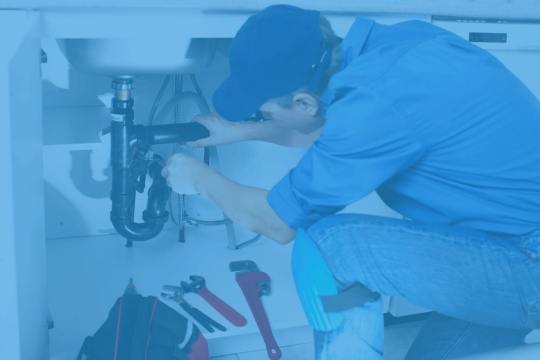
https://drain-express.com/drain-cleaning-service/ - Unleash the power of Drain Express Professional Plumbing & Drain Cleaning in Durham, NC, for comprehensive drain cleaning services. From stubborn sink clogs to complex sewer blockages, our skilled technicians provide 24/7 support, guaranteeing a swift resolution. Serving Chapel Hill, Durham, and Raleigh, NC, our commitment to excellence ensures your plumbing remains hassle-free. Don't let drain issues disrupt your routine; take the first step towards a smoothly flowing system. Call Drain Express now!
0 notes